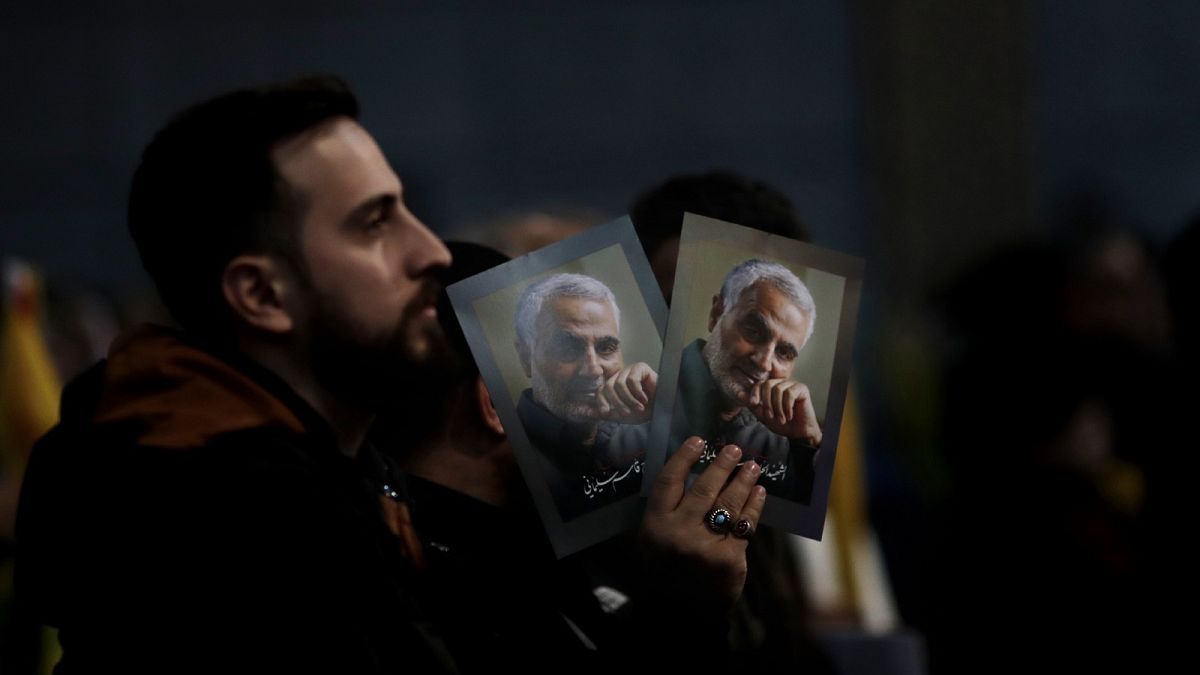As has been the case in the past, Donald Trump doesn’t see the links between his impulsive, corruption-driven decisions, like the Blackwater pardons, and threats to US national security.
US President Donald Trump’s pardoning of the Blackwater security contractors last week comes at the worst time, just days ahead of the death anniversary of Iranian General, Qassem Soleimani, killed by US strikes on January 3 2020 in a decision authorised by Trump.
The Blackwater pardons are not just an isolated US justice event demonstrating Trump’s irresponsible conduct. Apart from reminding Americans of their impunity in Iraq war crimes, the pardoning gave rise to anger across Iraq, including among the families of the 17 civilians killed by the security contractors in 2007. But the pardons also have a connection to potential retaliation against the US on the occasion of Soleimani’s death anniversary, which is only days away.
Last week, rockets hit near the US embassy in Bagdad after being intercepted mid-air by the embassy’s C-RAM defence system – two weeks ahead of Soleimani’s death anniversary. Deutsche Welle reported that the attacks were the third apparent violation of the truce agreed in October between Western and Iraqi authorities and hard-liner pro-Iran groups operating in Iraq.
Anger over impunity in Iraqi killings could stir things up, empowering pro-Iran, Iraq-based Shia paramilitary groups.
Last week, Iraqi Shia paramilitary group Kataeb Hezbollah, which itself has been accused of carrying out previous attacks, said that “bombing the [US] embassy of evil at this time is considered out of order”. But this position was before the Blackwater pardons by Trump, which came several days later.
The connection between Iraqi loss of life caused by the Blackwater contractors and the pro-Iran militias operating inside Iraq already became apparent back in 2007 and was identified by author Peter Singer. Singer submits that in the same week of the Blackwater massacre, radical Shia leader Muqtada al-Sadr was planning the withdrawal of his coalition from the government, and instead of having to justify the act (which potentially could collapse the government and plunge Iraq into civil war), al-Sadr was able to focus his propaganda and recruiting efforts on the Blackwater episode, describing it as “a cowardly attack committed by the so-called security company against our people without any justification”. Al-Sadr was blaming not only the security company but America as a whole. Local Iraqis did not need further convincing.
Fast-forward 14 years to 2021, the Blackwater pardoning could serve the same purpose for pro-Iran, hard-liner militias operating inside Iraq by giving their retaliation ideas legitimacy, credibility, and support. It should be recalled that back in 2016, Blackwater founder Erik Prince advocated for killing Soleimani before the Trump circle, as revealed by CNN.
On Monday, during a press briefing in Tehran, Iranian Foreign Ministry spokesperson Saeed Khatibzadeh said that Iran won’t let the death of General Soleimani go “unpunished” and, in the same statement, called US President Donald Trump’s pardon of Blackwater contractors a “shameful thing” that manifested “one of the dark spots of US presence in Iraq”.
The question is how pro-Iran militias inside Iraq might use the Blackwater pardoning – as they have done in the past.
Now president-elect Joe Biden had been adamant on trying and convicting the Blackwater security contractors who became to be known as the “Biden four”. This new development comes at a time of power transfer and it is a situation which the Biden administration will inherit at the worst possible time.
As usual, Trump doesn’t even see and is unconcerned about the links between his impulsive and corruption-driven decisions, on one hand, and US foreign policy outcomes, on the other hand. This is serious business. It goes beyond Iraqi victims’ families’ disappointment and American citizens’ outrage, in general. Especially, in this case, Trump’s seemingly unrelated Blackwater free pass will be stoking additional Iraqi anger and might directly affect the scale of the Soleimani anniversary retaliation, with a potential loss of American lives, as a result.
- Iveta Cherneva is a security and human rights author who previously served at the Office of the UN High Commissioner for Human Rights and worked for the US congress
_____________
Are you a recognised expert in your field? At Euronews, we believe all views matter. Contact us at view@euronews.com to send pitches or submissions and be part of the conversation.


